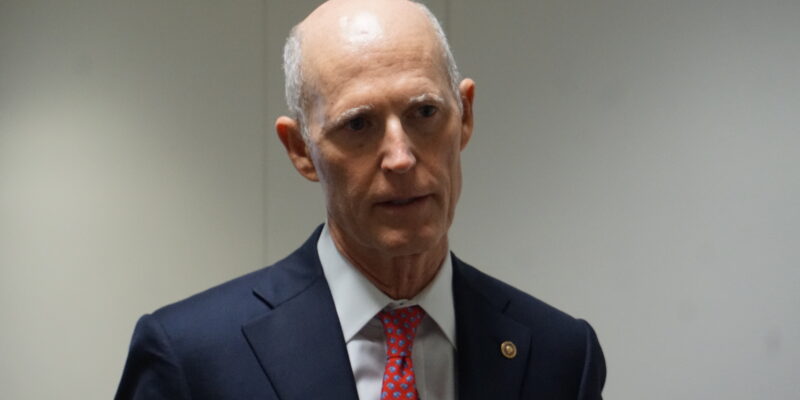Flood insurance premiums continue to rise in Florida, and Florida Senator Rick Scott (R) wants to address it. Senator Scott has introduced legislation that would provide tax relief for Americans who purchase flood insurance through the National Flood Insurance Program (NFIP) or through a private insurance carrier.
Last year, Senator Scott directed a letter to David Maurstad, the Senior Executive of the NFIP, calling for transparency and accountability as FEMA's Risk Rating 2.0 has increased flood insurance rates for millions of Floridians. Thus, coverage has been nearly unaffordable for families who need it.
This year, the Florida senator reintroduced three bills, the Flood Insurance Consumer Choice Act, the Removing Barriers to Private Flood Insurance Act, and the Flood Insurance Transparency Act. In reintroducing the bills, Senator Scott wants to reform the NFIP, which would lead to a lower cost of flood insurance, a more robust private market, and the property insurance market would better serve Florida families.
His latest effort would incentivize flood insurance coverage by starting a non-refundable tax deduction for flood insurance premiums. The companion bill in the House of Representatives is being led by Florida Rep. Byron Donalds (R).
Commenting on the effort, Senator Scott highlighted that the NFIP is broken and how rising costs are affecting Floridians.
"While we continue to work on permanent solutions to the problems plaguing the NFIP, we need to make sure hardworking folks have access to affordable coverage. That’s why I am introducing and will be fighting to pass legislation that provides a non-refundable tax break to families who purchase flood insurance coverage either through the private market or the NFIP," he said in a statement.
Rep Donalds echoed in his remarks, adding that “over recent years, residents of Southwest Florida and the Sunshine State have been faced with an exponential rise in flood insurance costs. This unsustainable trend is severely impacting hardworking Florida families and it is critical that this problem is immediately addressed.”





